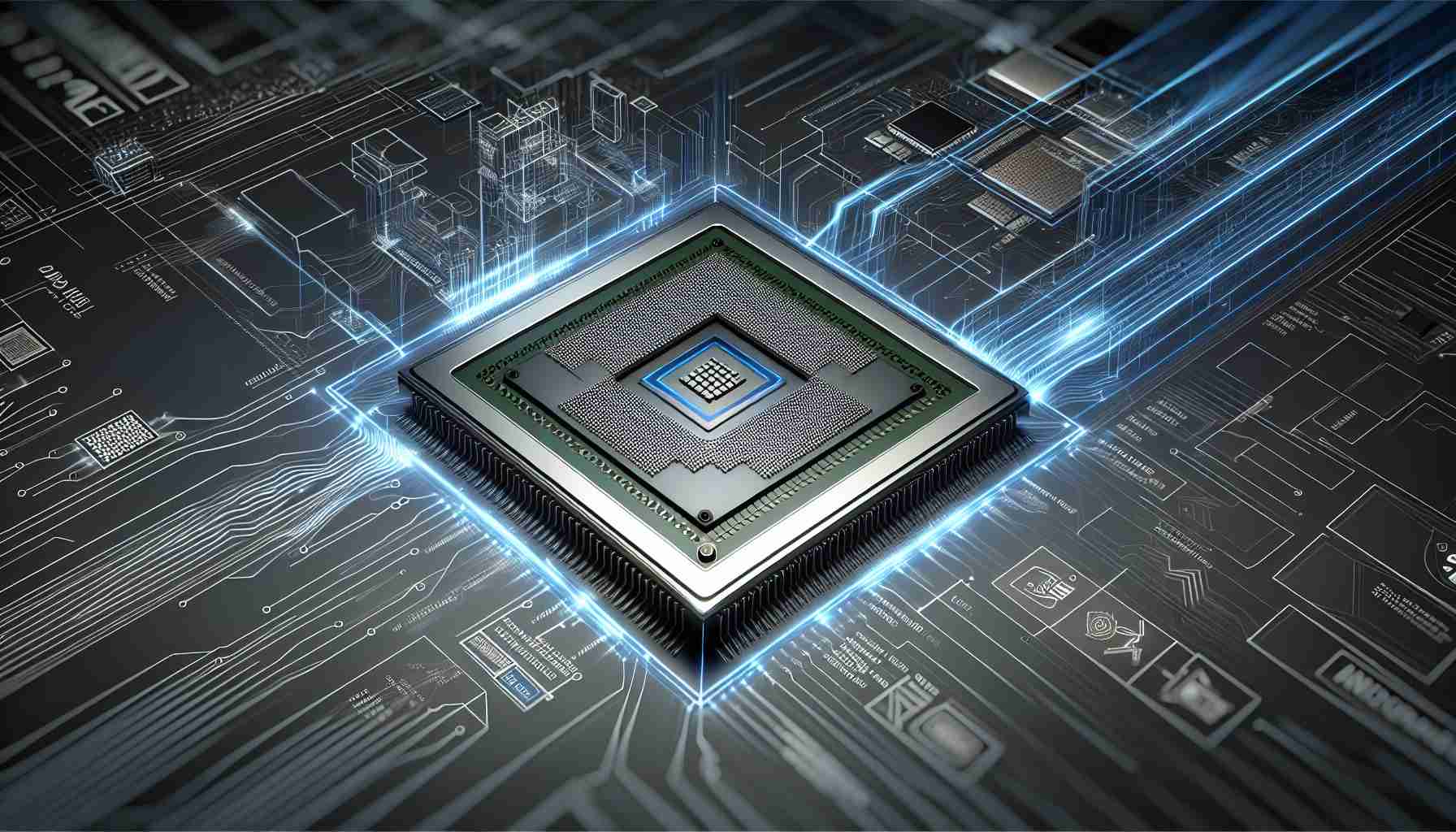Summary: Intel has stepped up its game in the artificial intelligence chip market with the introduction of the Gaudi 3 chip. Although Nvidia currently leads as the top AI chip seller, Intel’s latest technology shows promising advancements that could reshape market dynamics, offering enhanced AI compute capabilities and improved efficiency.
The tech industry has recently witnessed the unveiling of Intel’s Gaudi 3, an artificial intelligence (AI) chip poised to rival Nvidia’s reign as the leading AI chip manufacturer. Nvidia’s products have historically surpassed competitors in terms of power and performance, driving their earnings and share price upward. However, Intel’s Gaudi 3 chip could signify a new chapter for the company, which saw a decline in share value due to reduced PC demand and prior setbacks in the AI sector.
Intel’s revolutionary Gaudi 3 boasts quadruple the AI compute prowess and a 1.5 times uptick in memory bandwidth in comparison to its predecessors. This chip is designed to accelerate the training times of complex language models significantly, such as Llama 2, and to improve inference throughput by 50% against Nvidia’s H100 graphics processing unit (GPU), all while enhancing power efficiency. The performance enhancements suggest a favorable cost-efficiency ratio, although Intel has not disclosed specific pricing.
Despite this leap forward for Intel, Nvidia continues to innovate, with plans to release its cutting-edge Blackwell architecture and the B100 chips later in the year. As such, Gaudi 3’s impact may be more about strengthening Intel’s position in the market rather than overtaking Nvidia.
Intel’s strategic focus on balancing cost and performance appears well-suited to an expanding market of diverse companies integrating AI into their operations. As the demand for AI solutions continues to flourish, the Gaudi 3 chip could potentially resurrect Intel’s earnings and appeal to investors, presenting a timely inflection point for a company ready for revitalization.
The Artificial Intelligence (AI) chip market is rapidly expanding as industries increasingly rely on AI and machine learning for data analytics, autonomous systems, and a variety of AI-driven applications. The developments in AI chips are crucial as they are the bedrock enabling faster and more efficient computation needed to process large datasets and execute complex algorithms.
Industry analysts predict that the market for AI chips is expected to grow significantly in the coming years. According to market research reports, the AI chip market is projected to multiply, driven by factors such as the increasing adoption of AI in cloud computing, edge devices, and advances in areas like Internet of Things (IoT), robotics, and virtual assistants. The rise of autonomous vehicles and smart cities initiatives are also instrumental in propelling the demand for advanced AI chips.
While Intel’s entry with the Gaudi 3 chip looks promising, the company enters a competitive landscape. Nvidia, with its established GPU products, has been at the forefront of the AI hardware market. However, this market is also seeing the rise of other players, such as Google with its Tensor Processing Units (TPUs), AMD with its strong GPU offerings, and startups like Graphcore, creating an encouraging environment for innovation and competition.
Intel is aiming to resolve some of the pressing issues related to efficiency and compute capabilities in the AI industry. Power consumption, processing speed, and the ability to handle voluminous datasets without incurring excessive costs are central challenges that AI chip manufacturers strive to overcome.
With the release of Intel’s Gaudi 3 chip, the company is looking to address these challenges by offering enhancements that target both energy efficiency and performance. This is particularly important as the rising energy demands of data centers, which are often powered by these chips, have become a significant concern from both cost and environmental perspectives.
For accurate and up-to-date information on Intel’s advancements, one should refer to its official domain at Intel. Conversely, when seeking information on the broader market and competitors such as Nvidia, visiting Nvidia would provide insights into their latest products and strategic directions, although at present, these competitors maintain the market lead.
Overall, the introduction of the Gaudi 3 chip by Intel represents an essential development in an industry where innovation is continuous and rapid. The AI chip market forecast appears robust, and despite the challenges facing the industry, technological advancements such as those purported by Intel’s new chip make it an exciting field to watch in the near future.

